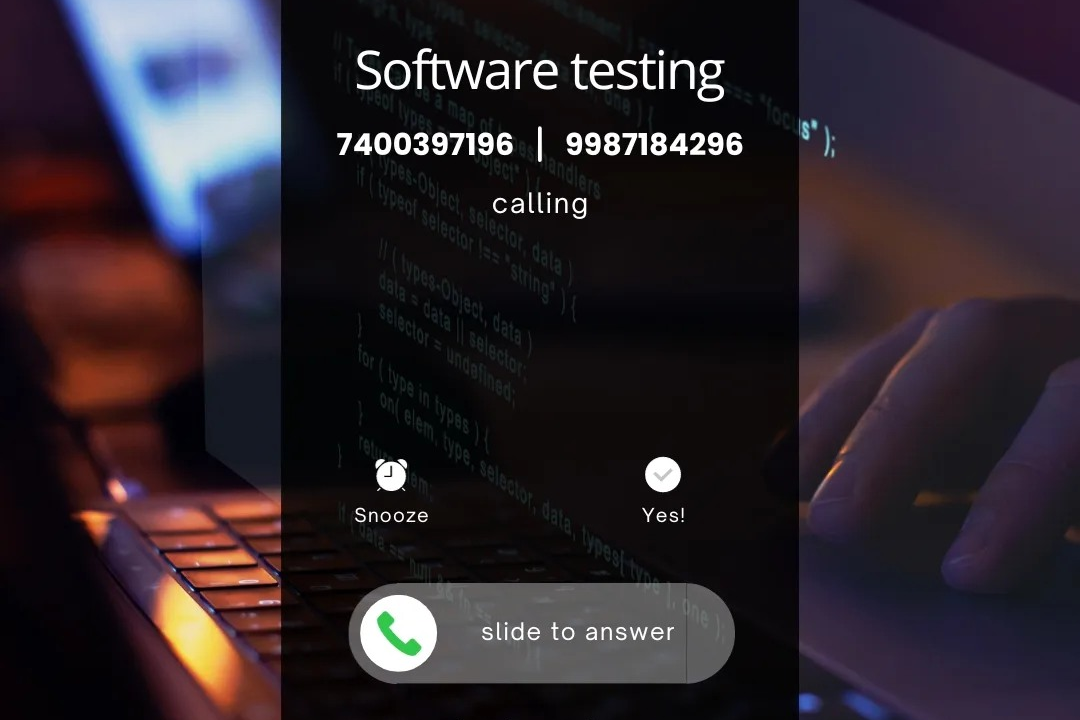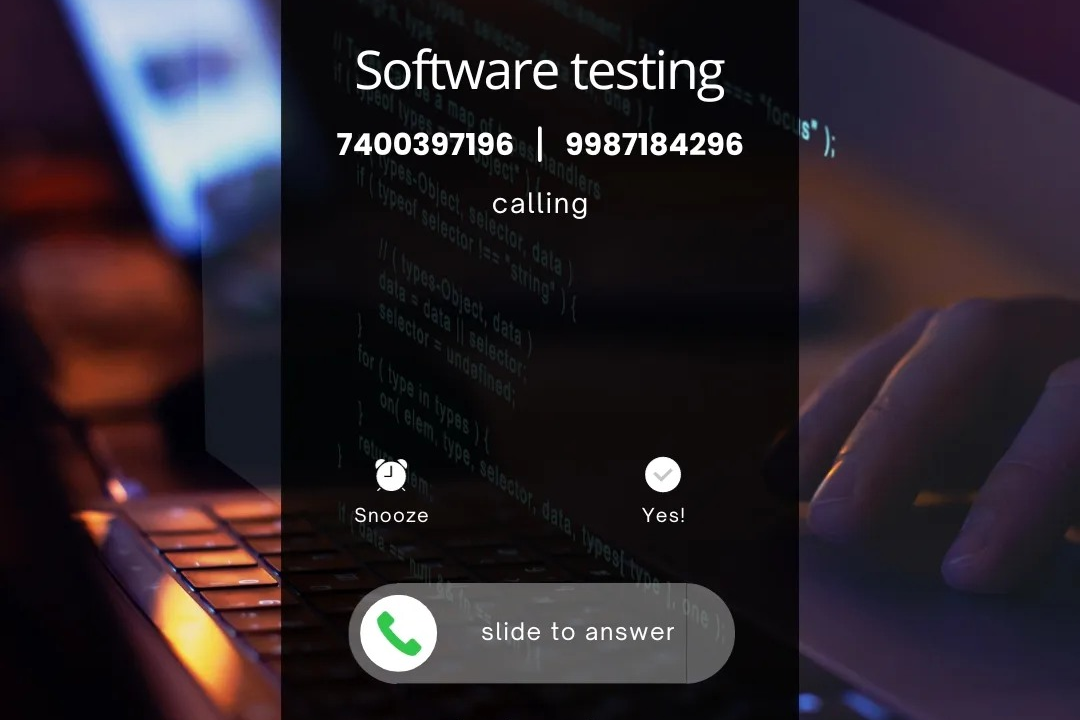Io.Appium.Java_client.Android Does Not Exist
The "io.appium.java_client.android does not exist" error indicates that the Appium Java client libra
Io.Appium.Java_client.Android Does Not Exist
The error “io.appium.java_client.android does not exist” signifies that the essential classes and methods from the Appium Java client library for Android are unavailable in your project. This library is pivotal for developers and testers as it facilitates the automation of Android applications by providing a structured interface to interact with app elements and execute test scripts. Without this functionality, automating and validating user interactions in Android apps would be cumbersome, hindering the testing process. Ensuring that the Appium Java client library is correctly integrated into your project is crucial for effective mobile application testing and maintaining high-quality software standards.
To Download Our Brochure: https://www.justacademy.co/download-brochure-for-free
Message us for more information: +91 9987184296
The error “io.appium.java_client.android does not exist” signifies that the essential classes and methods from the Appium Java client library for Android are unavailable in your project. This library is pivotal for developers and testers as it facilitates the automation of Android applications by providing a structured interface to interact with app elements and execute test scripts. Without this functionality, automating and validating user interactions in Android apps would be cumbersome, hindering the testing process. Ensuring that the Appium Java client library is correctly integrated into your project is crucial for effective mobile application testing and maintaining high quality software standards.
Course Overview
The course “io.appium.java_client.android Does Not Exist” provides a comprehensive understanding of the Appium Java client library for Android, focusing on common integration issues, including the infamous error message indicating that essential classes are missing. Participants will explore the foundational concepts of Appium, learn how to set up their development environment, and gain insights into troubleshooting and resolving these integration problems effectively. The course combines theoretical knowledge with practical sessions, equipping learners with the skills necessary to automate Android applications seamlessly, ultimately enhancing their mobile testing proficiency and ensuring robust application quality.
Course Description
The course “io.appium.java_client.android Does Not Exist” is designed to address the common challenges faced when integrating the Appium Java client library for Android. Participants will delve into the underlying issues that lead to the “does not exist” error, gaining a solid understanding of Appium's framework and its components. Through a mix of theoretical concepts and hands-on projects, students will learn to establish a proper development environment, troubleshoot integration issues, and implement effective automation strategies for Android applications. By the end of the course, learners will be equipped with the valuable skills and knowledge necessary to enhance their mobile testing capabilities and ensure the quality of their applications.
Key Features
1 - Comprehensive Tool Coverage: Provides hands-on training with a range of industry-standard testing tools, including Selenium, JIRA, LoadRunner, and TestRail.
2) Practical Exercises: Features real-world exercises and case studies to apply tools in various testing scenarios.
3) Interactive Learning: Includes interactive sessions with industry experts for personalized feedback and guidance.
4) Detailed Tutorials: Offers extensive tutorials and documentation on tool functionalities and best practices.
5) Advanced Techniques: Covers both fundamental and advanced techniques for using testing tools effectively.
6) Data Visualization: Integrates tools for visualizing test metrics and results, enhancing data interpretation and decision-making.
7) Tool Integration: Teaches how to integrate testing tools into the software development lifecycle for streamlined workflows.
8) Project-Based Learning: Focuses on project-based learning to build practical skills and create a portfolio of completed tasks.
9) Career Support: Provides resources and support for applying learned skills to real-world job scenarios, including resume building and interview preparation.
10) Up-to-Date Content: Ensures that course materials reflect the latest industry standards and tool updates.
Benefits of taking our course
Functional Tools
1 - Appium
Appium is the core tool for mobile automation testing in this course. It is an open source framework that allows users to write tests using a variety of programming languages, including Java. With Appium, learners will be introduced to its architecture, enabling them to create automated tests across native, hybrid, and mobile web applications. The comprehensive training covers setting up Appium with required dependencies and understanding the client server architecture.
2) Java Client
The io.appium.java_client library is an integral part of the training, as it provides the necessary APIs for interaction with Appium in Java projects. Detailed explanations are provided on how to create Android driver instances and connect them to the Appium server, allowing students to learn to interact with mobile devices effectively. The course illustrates the usage of different methods of the Java client to perform actions such as tapping, swiping, and scrolling within the application under test.
3) TestNG
TestNG is a testing framework that enhances the capabilities of unit testing and functional testing in Java. In this program, students will learn to integrate TestNG with Appium to design and manage test cases efficiently. Its features, such as test grouping, parameterization, and parallel execution, will be covered extensively. This not only helps in organizing tests but also in improving the reliability and maintainability of test scripts.
4) Eclipse IDE
The training includes effective use of the Eclipse Integrated Development Environment (IDE) to write and run Java automation scripts. Eclipse provides essential features like code completion, debugging, and refactoring that enhance the coding experience. The course will focus on setting up a Java project in Eclipse, adding and managing dependencies, and configuring the testing environment correctly, ensuring that students have a solid foundation in IDE usage.
5) Android Studio
Android Studio is a vital tool for mobile app development and testing. Within this training, students will learn how to utilize Android Studio for setting up the Android emulator, which is crucial for running tests on virtual devices. The program covers the process of installing the Android SDK and configuring the emulator settings to align with the requirements of their automated tests, providing a holistic approach to mobile testing.
6) Maven
Maven is a build automation tool used primarily for Java projects. In the course, students will explore how to manage project dependencies, automate builds, and run Appium tests using Maven. The curriculum emphasizes the creation of a Maven project, understanding the pom.xml file, and leveraging Maven commands to streamline the testing process, thereby reinforcing best practices for efficient project management in software testing environments.
7) Mobile Device Management (MDM)
Understanding Mobile Device Management is crucial for any mobile automation tester. Throughout the course, students will learn the fundamentals of MDM, how it impacts testing processes, and how to manage devices effectively. This section covers device provisioning, security policies, and the use of emulators versus real devices, ensuring that learners recognize the importance of MDM in maintaining the integrity of test environments.
8) UI Automator
As part of mobile testing, familiarity with UI Automator is essential. This training module introduces students to Google's automation testing framework specifically designed for Android applications. It covers accessing various UI elements and performing complex interactions that cannot be accomplished with Appium alone, thus providing versatility in test creation.
9) Real Time Project Implementation
The backbone of the JustAcademy experience is the hands on project work. Students will engage in a real time project that encompasses all they’ve learned—setting up complete mobile automation testing for an actual application. This includes defining project requirements, writing multiple test cases, executing them, and analyzing the results. The project will empower students to apply their knowledge practically and gain valuable experience.
10) Continuous Integration and Continuous Deployment (CI/CD)
Understanding CI/CD practices plays a vital role in modern software development and testing. This course module focuses on integrating Appium with popular CI/CD tools like Jenkins and CircleCI. Learners will gain insights into automating the execution of tests, ensuring that the latest builds are tested continuously, which ultimately helps in maintaining high quality applications.
11 - Reporting and Analytics
Effective reporting is critical for understanding automation test results. This section dives into popular reporting tools like Allure and Extent Reports, as well as frameworks that help generate insightful reports. Students will learn about best practices for logging and reporting results, creating comprehensive test reports that provide meaningful feedback for developers and stakeholders.
12) Debugging Techniques
Debugging is an essential skill for any tester. The course includes troubleshooting methods specific to mobile automation that enable students to identify and resolve common issues that may arise during test execution. Learners will be taught how to leverage log files, device logs, and debugging tools to diagnose problems effectively, ensuring a smoother testing process.
13) Cross Platform Testing
In the context of increasing mobile device diversity, understanding cross platform testing is vital. This module educates learners on how to utilize Appium capabilities to write tests that can work across both iOS and Android platforms. Techniques for managing platform specific differences in test scripts will be explored, equipping learners with the skills needed for versatile mobile application testing.
14) Best Practices in Mobile Automation Testing
To wrap up the learning experience, this course includes a dedicated section on best practices. Students will discover industry standards, coding conventions, design patterns for test automation, and organizational strategies that lead to effective mobile automation testing. Emphasis will be placed on code maintainability, scalability, and collaboration, fostering a professional approach to testing in real world environments.
15) Community and Continuous Learning
Encouraging ongoing education, the course emphasizes the importance of engaging with the testing community. Resources for forums, professional organizations, and learning platforms are shared, motivating students to continue their journey even after course completion. Networking opportunities, attending meetups, and participating in webinars will be discussed, highlighting the value of community in professional growth.
These additional points will empower learners by providing a deep understanding of mobile automation testing with Appium, ensuring they are well equipped to excel in their careers.
Browse our course links : https://www.justacademy.co/all-courses
To Join our FREE DEMO Session:
This information is sourced from JustAcademy
Contact Info:
Roshan Chaturvedi
Message us on Whatsapp: +91 9987184296
Email id: info@justacademy.co












